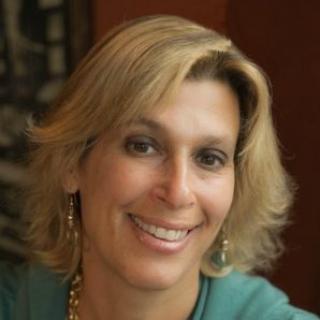

Prepare to be inspired by Yolanda Watson Spiva, Ph.D., newly appointed president and CEO of the College Success Foundation (CSF). The organization provides scholarships and mentoring for low-income, high-potential students in Washington state and Washington, D.C.
How and why was the College Success Foundation founded?
CSF was founded in 2000. It evolved from then-Gov. Gary Locke’s 2020 Commission on the Future of Post-Secondary Education, which called for the creation of an independent, nonprofit organization to foster public understanding about the importance of higher education and lifelong learning for low-income students.
The key is that we work with “high potential” students. When you talk about low-income students, there is an assumption that these are the “leave-behinds,” who won’t amount to anything. We recognize that these students were born into circumstances they can’t control, so we feel we should give them a chance.
You’ve had a 20-year career in education. What attracted you to the College Success Foundation?
I wanted the opportunity to have a direct impact on students. I had done policy work at the [U.S.] Department of Education, but I was interested in seeing what was happening on the ground.
I wanted to work on the system, but from outside the system.
There’s a misconception that, because industry is booming here in Greater Seattle, this is a wealthy area. That’s not true for the students we serve. I wanted to shed light on that. And I’m committed to making a difference in our nation’s capital.
You begin your outreach with middle school students. Why do you start talking about college so early? What is the difference between your outreach to middle schoolers and high schoolers?
Fifth grade is a pivotal year, in which some low-income students lose interest in school because they’ve been told college is not part of their future. They are really in jeopardy of dropping out by the ninth or the 10th grade. If we can catch them earlier, we can provide a pathway to and an understanding of college and career.
We provide an integrated system of supports and have not one conversation about college, but several. Middle school is about exposure to college and to the lexicon of college. We take students to visit college campuses. Once they can see themselves at college, it opens up a world of opportunity.
In high school, we move from college awareness and exposure to college readiness. We help with financial aid forms and applying to the “right fit” college. College means a myriad of opportunities. We match a student’s motivation to his or her college selection.
We partner with school counselors and social services agencies to provide a “circle of support” around students and their families.
We also try to instill standards and values. Once you do this, kids can change their futures.
Do you have a favorite inspiring story about a student who surprised you?
I worked with a young man who came from a family in which nobody had completed eighth grade. He had five brothers, all of who fathered children by the age of 13 and all of who were incarcerated. I didn’t doubt him, but I worried he would be pulled into that lifestyle. We brought him to visit a college and he stayed overnight in a dorm. Afterwards, he said, “This is what I am meant to have.”
He applied to 19 colleges and was accepted to 18 of them. But he wanted to go to Morehouse College, his top-choice school, so he filed a four-page letter of appeal and was accepted on academic probation. He exceeded the school’s academic expectations and played a leadership role on campus. He graduated this spring and got to meet President Obama, who delivered the commencement address. He’s since had several job offers and plans to go on to graduate school. You’ll be hearing about him in the future.
What is your family’s relationship to education?
My grandparents were Florida farmers. They had 14 children, and every one of them went to college. My mother was number 14. She watched her siblings go through college, so she followed them, and went on to receive her Ph.D. In our house, education was the expectation.
I believe in the power of one and the ripple effect that can impact an entire community. The boy I mentioned earlier will be an example to his brothers and to his nieces and nephews and his community. He has shown them something different.
What is your philosophy about promoting college success for all?
Education is a gift. It is unfortunate that it is a gift, not a right. Everyone should have the right to attend college; to have a high-quality postsecondary education that will lead to a quality credential that they can use. I know some people say college isn’t for everyone. Where can you go in today’s economy and get a job without college?
There is no price tag you can put on this type of work. You either pay now, or pay dearly later, via the school-to-prison pipeline (in which students funnel out of school and into the criminal justice system) or by having to provide social services for folks who don’t contribute to our economy.
If all of us are not at least able to make a decent living, we will not be successful as a country.
Visit ParentMap's Education Expo page for cradle-to-college education resources.











